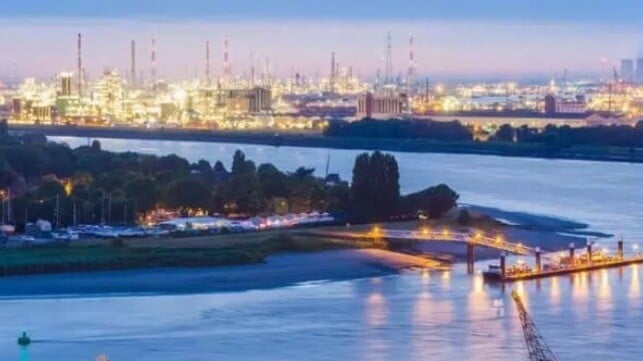EU Funding for CO2 Export Hub and Liquefaction Plant at Antwerp

Efforts are continuing to build the infrastructure required for the transport and export of CO2 as part of the broader schemes for the capture, storage, or re-use of carbon emissions. The EU Commission announced it will grant Air Liquide, Fluxys Belgium, and Port of Antwerp-Bruges €144.6 million (approximately $150 million) under the Connecting Europe Facility for Energy (CEF-E) funding program to support efforts to build a CO2 export infrastructure.
The funding is earmarked for the construction of shared CO2 transport and export facilities on the Antwerp port platform. According to the partners in the project, the grant award is a major step towards the final investment decision, expected in 2023. The EU is seeking to encourage the project, which the partners note will be among the first and largest multimodal open-access CO2 export facilities in the world.
The project, named Antwerp@C CO2 Export Hub, is set up as an open-access infrastructure to transport liquefied carbon and load CO2 onto ships for onward permanent offshore storage. CO2 captured from the industrial sites on the Antwerp port platform will be collected and transported via an intra-port open-access pipeline network. A shared liquefaction and export terminal will be built, including a CO2 liquefaction unit, buffer storage, and marine loading facilities for cross-border shipping.
The project is the first phase of Antwerp@C, an initiative involving Air Liquide, BASF, Borealis, ExxonMobil, INEOS, TotalEnergies, Fluxys, and Port of Antwerp-Bruges, with the ambition to halve the CO2 emissions in the Antwerp port area by 2030.

that matters most
Get the latest maritime news delivered to your inbox daily.
As part of the project, Air Liquide and Fluxys intend to form a joint venture for the construction and operation of the CO2 liquefaction and export terminal. The planned CO2 liquefaction plant is expected to be the first of its kind in its scale and design. The Port of Antwerp-Bruges reserved a plot of land for the terminal in a strategic location inside the port and will build new quay infrastructures for the mooring of CO2 ships.
The Antwerp@C CO2 Export Hub will have an initial export capacity of 2.5 million tons per annum (Mtpa), with the ambition to reach up to 10 Mtpa by 2030. The goal is for it to pave the way for future CCS initiatives in the region by providing scalable and modular infrastructures accessible to all industrial players.
